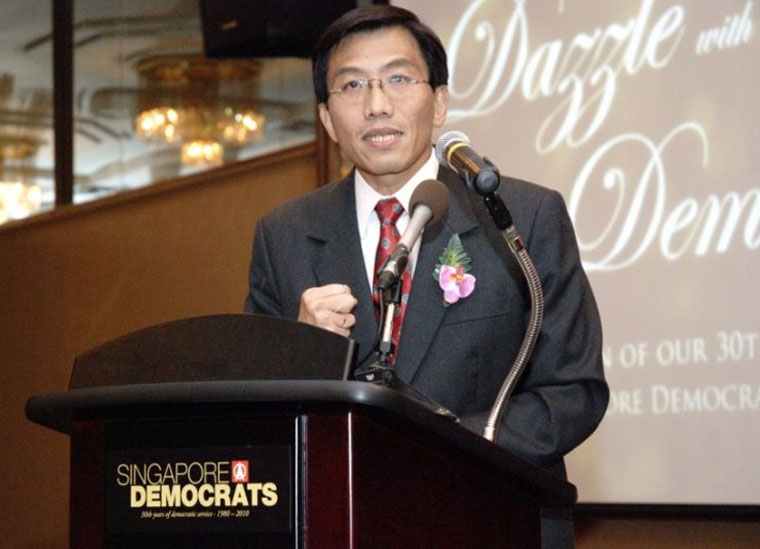The Singapore Democratic Party chief Chee Soon Juan has revealed why his recent opinion piece on Nov. 27, 2014 ended up being published on the Wall Street Journal: The reason is simply because the local mainstream media has been shutting him out for years.
The 52-year-old opposition politician who is most likely running for the next General Election since he is no longer declared a bankrupt, wrote in an article posted on the Singapore Democratic Party website on Dec. 7, 2014, that it was never his intention to turn to overseas media to air his musings.
Chee's article, "A New Vision for Singapore", elicited some feisty remarks from Jacky Foo, the government's Hong Kong Consulate-General, who accused the opposition politician of using the Western media to poke the authorities.
Chee's response to this criticism is that he tried sending his piece to The Straits Times first to see if they would run it, but did not get a response from them.
For the record, ST's political editor is Paul Jacob.
However, Chee was not introspective enough to consider why he is still beholden to dinosaur media when he ought to be cultivating his own following online, à la Prime Minister Lee Hsien Loong who has close to half a million Facebook fans.
Regardless, here is Chee's response in full:
The Government's rebuttal of my Wall Street Journal op-ed A New Vision for Singapore said that I “pander to the editorial tastes of the Western media.”
It is a label that the PAP has always tried to hang on me: that I am in collusion with the West against Singapore.
What I have not made public so far is the fact that I had offered the piece to the Straits Times first. I sent it to the newspaper's political editors on 13 November 2014 and sent a reminder on 19 November and to enquire if the ST would use it.
I did not receive a response. It was only then that I offered the piece to the WSJ.
In reporting the Government's letter through Hong Kong Consulate-General Mr Jacky Foo, ST could have informed readers that I had, in fact, sent it the piece first.
Singapore needs an honest conversation about the direction of our country. I wanted to have this discussion with the Singapore people in a Singaporean newspaper. Clearly, this was not to be.
But even as it reports the Government's rebuttal, ST has not published or reported on what I wrote in WSJ. To remedy this, I have written a letter to the ST (as well as Today and Channel News Asia which also carried the report) to address the matters raised by Mr Foo.
In the nearly 25 years that I have been with the SDP, I have published several op-eds in international newspapers and news sites such as The Guardian, The Australian, CNN, Huffington Post, and WSJ but I have not been able to publish in Singaporean newspapers.
I have also been interviewed on news programmes and radio talk shows on BBC, CNN, NPR, Reuters, Australia's ABC, just to name a few. But I have never had been invited to talk on a Singaporean TV or radio station.
In fact, in 2011 prior to the elections, CNA repeatedly left out the SDP in its programme Talking Point while other opposition parties were invited. It was only after we protested the discrimination on this website that CNA relented and invited us, but not before insisting that only office-holders who were eligible for the elections could participate. That ruled me out as I was barred from elections because of my bankruptcy.
The truth of the matter is that I have always wanted to discuss issues of national importance with my fellow Singaporeans and the most effective way to do this is in the Singaporean media. But it has always been the heavy hand of state censorship that has prevented this.
It is, therefore, unfair to say that I pander to the editorial taste of the Western media.
Which, by the way, raises two questions:
One, if the Government says that my op-ed panders to the Western media, is it not admitting that the piece is unpalatable to the local media?
Two, should the media be the arbiter of taste in the first place or should they be facilitators of debate and discussion in pursuit of the truth regardless of taste?
Top photo via
If you like what you read, follow us on Facebook and Twitter to get the latest updates.
If you like what you read, follow us on Facebook, Instagram, Twitter and Telegram to get the latest updates.
